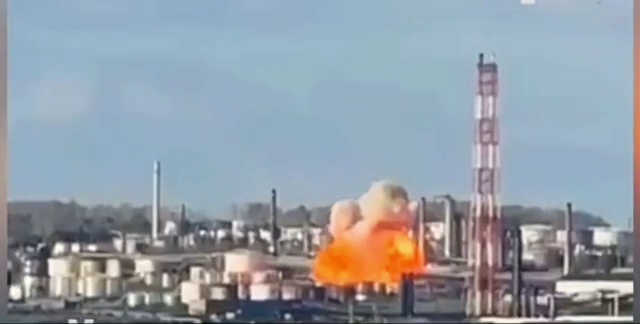Russia, which has undermined the global order and security, is now suffering huge losses from the war despite support from China, India, and Brazil. Over the past two months, the number of gas stations in the country has decreased by 360 sites, or 2.6%, the Ukrainian Foreign Intelligence has reported.
The primary reason for the deficit is systematic attacks by Ukrainian drones on oil refineries. In September, Russia’s oil product exports fell by 18%, with the largest drop between 11 and 15 September following the attack on the Port of Prymorsk. According to Reuters, in August alone, the country lost 17% of refining capacity, or 1.1 million barrels per day.
Independent networks were hit hardest, with a 4.1% drop, while stations owned by vertically integrated oil companies fell by only 0.8%.
Sales limits and local shortages
Some networks have had to limit gasoline sales to 10–20 liters per customer or sell only diesel. The worst situation is in the Southern Federal District, where over 220 gas stations, or 14.2%, have stopped selling fuel. In Rostov, Mari El, and the Jewish Autonomous Region, the drop reached 12–14%. Even Moscow, Moscow, and Leningrad oblasts faced problems: some Lukoil stations banned gasoline sales in cans.
Crimea at the center of the fuel crisis
The sharpest shortages are in temporarily occupied Crimea and Sevastopol, where roughly half of all gas stations have stopped selling petrol. The head of the occupation administration, Sergey Aksyonov, urged residents to “be patient” and attributed the deficit to “objective reasons” — a decline in production at Russian refineries.
Russian oil remains a key source of revenue that funds its military aggression against Ukraine. In 2025, profits from the oil and gas sector account for about 77.7% of Russia’s federal budget.
According to the International Liberty Institute, the main buyers of Russian oil remain Asian countries, as European markets are largely restricted by sanctions.
Ukraine says that Russia’s fuel shortage will only worsen. Most refineries and oil depots are concentrated in the western part of the country, making deliveries to remote regions extremely difficult.
This includes the European part of Russia, directly bordering Ukraine, such as Bryansk, Kursk, and Voronezh oblasts.




